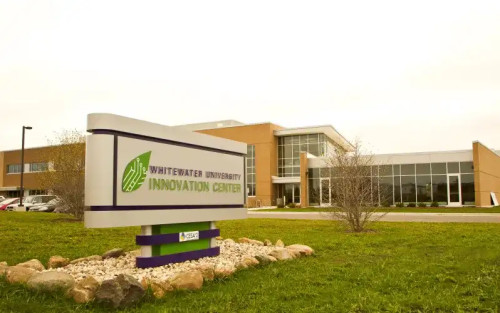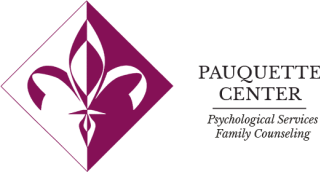

Pauquette Center - Whitewater
Treatment Focus
This center treats mental health conditions and co-occurring substance use. You receive collaborative, individualized treatment that addresses both issues for whole-person healing.
Primary Level of Care
Outpatient treatment offers flexible therapeutic and medical care without the need to stay overnight in a hospital or inpatient facility. Some centers off intensive outpatient program (IOP), which falls between inpatient care and traditional outpatient service.
This provider hasn't verified their profile's information. Are you the owner of this center? Claim your listing to better manage your presence on Recovery.com.
Treatment Focus
This center treats mental health conditions and co-occurring substance use. You receive collaborative, individualized treatment that addresses both issues for whole-person healing.
Primary Level of Care
Outpatient treatment offers flexible therapeutic and medical care without the need to stay overnight in a hospital or inpatient facility. Some centers off intensive outpatient program (IOP), which falls between inpatient care and traditional outpatient service.
Provider's Policy
For a full list of all accepted insurance, please contact us at any of our locations.
Pauquette Center - Whitewater
Pauquette Center - Whitewater
About Pauquette Center - Whitewater
Pauquette Center offers comprehensive outpatient services for children to older adults 8AM-5PM Monday-Friday. The center, located in Whitewater University's Innovation Center, is surrounded by a peaceful environment with nearby walking paths. The center offers dialectical behavior therapy (DBT) groups for 3 different age groups and a domestic violence and anger management group for adult men. Pauquette Center offers psychological assessment and testing by a licensed psychologist along with forensic assessment and treatment for anger management, disrupted personality characteristics resulting in criminal behavior, competency to stand trial, and more. In addition, Pauquette Center has a clinician who is fluent in American Sign Language (ASL) and provides psychotherapy and addiction recovery services for hearing impaired individuals and their families. The center takes clients enrolled in Comprehensive Community Services (CCS) in Columbia, Sauk, Jefferson, Richland, and Walworth counties.
Alcohol and Other Drugs (AODA) Counseling
This center offers individual AODA Counseling for those struggling with substance use. The focus of treatment is addiction, recovery, and relapse prevention. Clients will learn to recognize triggers and make lifestyle changes for recovery success. All of their AODA counselors are licensed to treat both AODA and mental health issues.
Parenting Support
Pauquette Center offers a parenting program with individual therapy, phone coaching, and group training options. They offer counseling for parents who find it difficult to parent related to their own mental health concerns and provide consultation on parenting techniques that would be helpful for the family culture. During sessions, clinicians will work with parents on consistency, teaching and maintaining health boundaries, love, and nurturing. Pauquette Center also offers psychotherapy for children including play therapy.
Domestic Violence and Anger Management
Group therapy designed for men with a history of domestic violence and/or significant anger issues. This group provides psychoeducation and addresses anger, violence, power and control, and healthy relationships. This group meets 1 hour a week for 24 weeks and meets the state standard for offender intervention. In addition, Pauquette Center offers services for men and women who have experienced domestic violence in their relationships.
Dialectical Behavior Therapy (DBT)
Pauquette Center offers tailored DBT programming for adults, adolescents, and children. Before treatment, all individuals will complete an initial 1 hour long screening before a clinician is assigned. Then, individuals will complete a DBT-specific intake and participate in 3-5 sessions of pre-treatment to learn about DBT, the program, and expectations before fully committing to treatment. Their adult (18 and older) DBT program includes 1 hour long group sessions twice a week and 1 hour of individual therapy with a DBT clinician once a week. During treatment, individuals will have access to phone coaching with their therapist between sessions. Their adolescents (13-18 years old) program meets for group skills training for 2 hours once a week and adolescents also meet with a DBT provider 1-on-1 for 1 hour once a week. Both the adolescent and caregiver must be prepared to participate in all group sessions and family sessions are offered as needed. Adolescents will also have access to phone coaching between sessions. The children’s program requires greater commitment from caregivers than the child. Caregivers will learn a number of foundational skills about validation, acceptance, and behavior change. Most caregivers participate in the once weekly “parent training” group that meets for 1 hour per week in addition to working individually with a DBT-C therapist. After foundational skills are learned, the child will likely start to have their own weekly sessions while the caregiver sessions continue.
Center Overview
Treatment Focus
This center treats mental health conditions and co-occurring substance use. You receive collaborative, individualized treatment that addresses both issues for whole-person healing.

Insurance Accepted
Cash Pay Rates
Estimated Cash Pay Rate
Center pricing can vary based on program and length of stay. Contact the center for more information. Recovery.com strives for price transparency so you can make an informed decision.
Levels of Care





Your Care Options
Specializations
Anger
Although anger itself isn't a disorder, it can get out of hand. If this feeling interferes with your relationships and daily functioning, treatment can help.
Who We Treat
Older Adults
Addiction and mental health treatment caters to adults 55+ and the age-specific challenges that can come with recovery, wellness, and overall happiness.
Adolescents
Teens receive the treatment they need for mental health disorders and addiction, with the added support of educational and vocational services.
Children
Treatment for children incorporates the psychiatric care they need and education, often led by on-site teachers to keep children on track with school.
Young Adults
Emerging adults ages 18-25 receive treatment catered to the unique challenges of early adulthood, like college, risky behaviors, and vocational struggles.
Approaches
Evidence-Based
A combination of scientifically rooted therapies and treatments make up evidence-based care, defined by their measured and proven results.
Family Involvement
Providers involve family in the treatment of their loved one through family therapy, visits, or both–because addiction is a family disease.
Individual Treatment
Individual care meets the needs of each patient, using personalized treatment to provide them the most relevant care and greatest chance of success.
Therapies
1-on-1 Counseling
Patient and therapist meet 1-on-1 to work through difficult emotions and behavioral challenges in a personal, private setting.
Play Therapy
This approach is commonly used with children. It incorporates elements of play and self-expression, like boardgames, finger painting, dolls, and blocks.
Online Therapy
Patients can connect with a therapist via videochat, messaging, email, or phone. Remote therapy makes treatment more accessible.
Family Therapy
Family therapy addresses group dynamics within a family system, with a focus on improving communication and interrupting unhealthy relationship patterns.
Life Skills
Teaching life skills like cooking, cleaning, clear communication, and even basic math provides a strong foundation for continued recovery.
Motivational Interviewing
Based on the idea that motivation to change comes from within, providers use a conversational framework to discover personalized methods for change.
Narrative Therapy
Through narrative therapy, patients rewrite past events with a positive focus. They separate themselves from the problem to see their purpose and capabilities.
Psychoeducation
This method combines treatment with education, teaching patients about different paths toward recovery. This empowers them to make more effective decisions.
Conditions We Treat
Grief and Loss
Grief is a natural reaction to loss, but severe grief can interfere with your ability to function. You can get treatment for this condition.
Personality Disorders
Personality disorders destabilize the way a person thinks, feels, and behaves. If untreated, they can undermine relationships and lead to severe distress.
ADHD, ADD
ADHD is a common mental health condition caused by dopamine imbalance. Common symptoms include inattention, hyperactivitiy, and impulsivity.
Anger
Although anger itself isn't a disorder, it can get out of hand. If this feeling interferes with your relationships and daily functioning, treatment can help.
Anxiety
Anxiety is a common mental health condition that can include excessive worry, panic attacks, physical tension, and increased blood pressure.
Bipolar
This mental health condition is characterized by extreme mood swings between depression, mania, and remission.
Depression
Symptoms of depression may include fatigue, a sense of numbness, and loss of interest in activities. This condition can range from mild to severe.
Eating Disorders
An eating disorder is a long-term pattern of unhealthy behavior relating to food. Most people with eating disorders have a distorted self-image.
Gambling
Excessive, repetitive gambling causes financial and interpersonal problems. This addiction can interfere with work, friendships, and familial relationships.
Substances We Treat
Alcohol
Using alcohol as a coping mechanism, or drinking excessively throughout the week, signals an alcohol use disorder.
Co-Occurring Disorders
A person with multiple mental health diagnoses, such as addiction and depression, has co-occurring disorders also called dual diagnosis.
Drug Addiction
Drug addiction is the excessive and repetitive use of substances, despite harmful consequences to a person's life, health, and relationships.
Languages
Care Designed for Your Needs
Special Considerations






